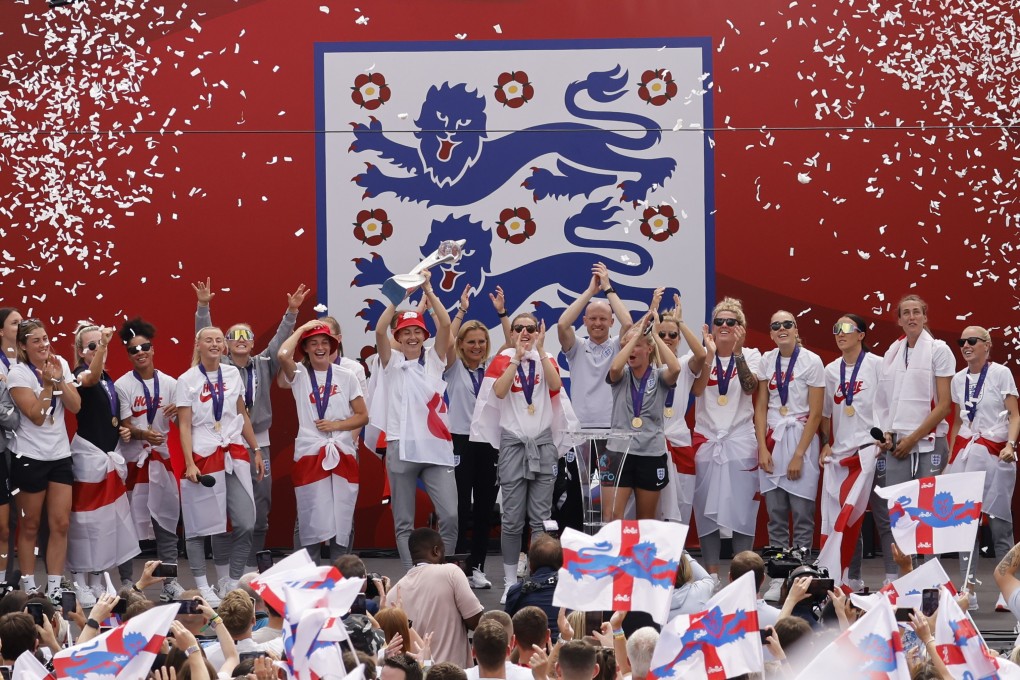Lunar | England’s Lionesses won Euro 2022, but the battle for gender parity in sport has just begun
- The clearest indicator of how much women’s sports are valued comes from remuneration
- For all the talk of England women’s historic win, true progress might not be made until there is pay equity and real investment in women’s sports

Following the Lionesses’ victory, British radio shows were flooded with calls from women who felt vindicated, after being told over the years that “girls cannot and do not play football” and that “you don’t understand football – you’re just a woman”. Naturally, this issue goes far beyond football. When WNBA star Sabrina Ionescu wanted to play basketball in middle school in the United States, she was told that she should be playing with dolls. Eventually, she overcame this resistance by finding enough girls to put together a team.
That a girl in her early teens could show such initiative is definitely praiseworthy. But despite the feel-good element to this story, we should not lose sight of the real possibility that had she not persisted, Ionescu might not be where she is today.
Also, Ionescu had the good fortune to have been mentored by NBA superstar Kobe Bryant. How many other girls and women can say the same?
In women’s sports, even getting proper venues and equipment can be a challenge. After the Lionesses’ victory, former British football star Alex Scott noted: “In 2018 we were begging people to host in their stadiums a women’s game for these Euros. So many people said no.”
Last year, the National Collegiate Athletic Association, which oversees student athletics across the United States, Canada and Puerto Rico, was called out on a lack of amenities, notably workout equipment, at the women’s basketball tournament compared with the men’s event.
